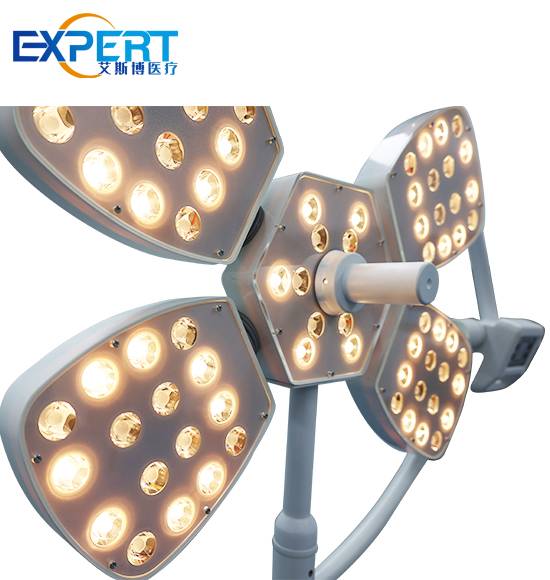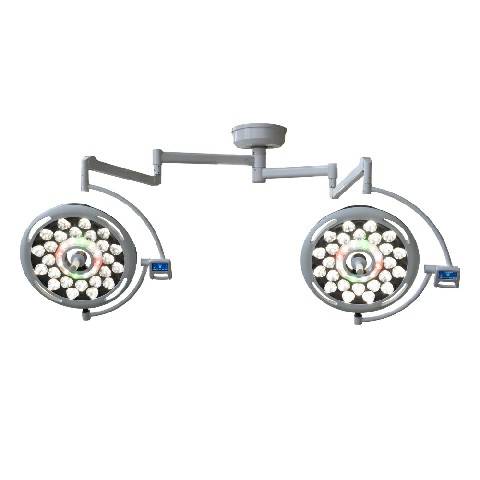عنوان
304 شارع الكاردينال الشمالي
مركز دورتشستر ، ماساتشوستس 02124
ساعات العمل
من الاثنين إلى الجمعة: 7 صباحًا - 7 مساءً
عطلة نهاية الأسبوع: 10 صباحًا - 5 مساءً
عنوان
304 شارع الكاردينال الشمالي
مركز دورتشستر ، ماساتشوستس 02124
ساعات العمل
من الاثنين إلى الجمعة: 7 صباحًا - 7 مساءً
عطلة نهاية الأسبوع: 10 صباحًا - 5 مساءً

In the realm of healthcare, patient safety is paramount. Among the numerous factors that contribute to a safe and successful surgical procedure, surgical lighting stands out as a critical component. Surgical lighting not only illuminates the operating field but also plays a vital role in enhancing visibility, precision, and overall outcomes in surgery. This comprehensive guide explores the role of surgical lighting in enhancing patient safety, delving into its various aspects, benefits, technological advancements, and maintenance practices.

Surgical lighting provides the necessary illumination to ensure that surgeons can see the operating field clearly. Proper lighting reduces shadows and highlights the anatomical structures, allowing surgeons to perform procedures with greater accuracy.
| Importance of Visibility | Impact on Surgery |
|---|---|
| Reduced Shadows | Enhances clarity of the surgical field |
| Accurate Illumination | Ensures proper identification of tissues |
| Depth Perception | Improves precision in surgical incisions |
| Consistent Light Quality | Reduces eye strain and fatigue for surgeons |
High-quality surgical lighting reduces the likelihood of errors during surgery. When surgeons have a clear view of the operating area, the risk of accidental cuts, tissue damage, and other complications is significantly minimized.
Optimal lighting conditions contribute to better surgical outcomes. With enhanced visibility and reduced errors, patients experience fewer complications, quicker recovery times, and improved overall health outcomes.









Technological advancements have revolutionized surgical lighting, making it more efficient, reliable, and beneficial for patient safety.
LED (Light Emitting Diode) technology has become the gold standard in surgical lighting due to its numerous advantages over traditional halogen lights.
| ميزة | LED Surgical Lighting |
|---|---|
| كفاءة الطاقة | Consumes less power, reduces heat output |
| طول العمر | Longer lifespan, fewer replacements |
| Light Quality | Brighter, more consistent illumination |
| مؤشر تجسيد اللون | Higher CRI for accurate tissue color |
Modern surgical lights come with adjustable intensity and focus features, allowing surgeons to tailor the lighting to specific needs during different stages of the procedure.
Advanced surgical lighting systems incorporate shadow management technology, which ensures uniform illumination by minimizing shadows caused by surgical instruments and the surgical team.
Newer surgical lighting systems can be integrated with other surgical equipment and imaging systems, providing synchronized and automated lighting adjustments based on the surgical workflow.
Proper surgical lighting reduces eye strain and fatigue for surgeons, enabling them to maintain focus and precision throughout lengthy procedures.
With optimal lighting conditions, surgeons can concentrate better on the task at hand, leading to more accurate and efficient surgical performance.
Modern surgical lights are designed to provide uniform and flicker-free illumination, creating a comfortable working environment for the surgical team.
Good lighting improves visibility for the entire surgical team, facilitating better coordination and communication during procedures.

To ensure the continued performance and safety benefits of surgical lighting, regular maintenance and proper care are essential.
Regular inspections of surgical lighting systems help identify and address potential issues before they escalate. This includes checking for any damage, wear and tear, and ensuring all components are functioning correctly.
Maintaining a sterile environment is crucial in the operating room. Surgical lights should be regularly cleaned and sterilized to prevent contamination and ensure optimal light output.
Even with advanced LED technology, components such as bulbs and filters may need periodic replacement. Keeping track of usage hours and replacing parts as needed ensures consistent performance.
Engaging professional servicing for surgical lighting systems can help detect and resolve technical issues, upgrade software, and maintain the overall efficiency of the lighting system.
Surgical lighting plays an indispensable role in enhancing patient safety by providing optimal illumination, reducing errors, and improving overall surgical outcomes. Technological advancements such as LED lighting, adjustable intensity, and shadow management have significantly improved the quality and reliability of surgical lights. Ensuring regular maintenance and proper care of surgical lighting systems is essential for maintaining their performance and safety benefits. As technology continues to evolve, the future of surgical lighting holds even greater promise for enhancing patient safety and surgical efficiency.
The ideal color temperature for surgical lighting ranges from 3,500 to 5,000 Kelvin. This range provides a natural white light that enhances visibility and color differentiation of tissues.
Surgical lighting systems should undergo professional servicing at least once a year. Regular maintenance checks and immediate attention to any issues can prevent malfunctions and ensure consistent performance.
LED surgical lights are designed to minimize eye strain by providing uniform and flicker-free illumination. Properly adjusted LED lights should not cause eye strain during surgeries.
Shadow management technology ensures that the surgical field remains uniformly illuminated, minimizing shadows caused by surgical instruments and personnel. This enhances visibility and reduces the risk of errors.
Integration of surgical lighting with imaging systems allows for synchronized lighting adjustments based on the surgical workflow. This provides optimal illumination during different stages of the procedure, improving precision and efficiency.